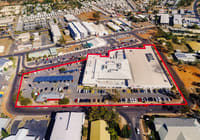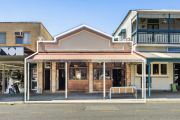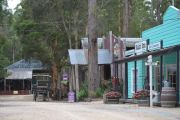
Thai family targets distressed sellers for luxury hotel growth plans
The Thai family which owns and operates one of Sydney’s flagship luxury hotels, the 415-room Amora Hotel Jamison in the city centre, is looking to double its presence in Australia within five years by buying discounted properties from distressed sellers.

“We want to cover all the tier one cities in Australia,” Earp Siriphatrawan, owner and director of Amora Hotel Group, said.
“We’re looking at opportunities to acquire hotels in Adelaide and Perth. We’d also like to have one more hotel in Melbourne, in the CBD,” Mr Siriphatrawan said.
Alongside the Amora Hotel Jamison in Sydney, the Siriphatrawan family own and operate the 111-room Amora Riverwalk Melbourne in the inner suburb of Richmond and the 300-room Amora Hotel Brisbane, which they acquired (as the-then Novotel) for $68 million in October 2020 and then spent $30 million upgrading it.
Mr Siriphatrawan said he was “pretty confident” about acquiring Amora’s next Australian hotel within 12 months, having been actively looking for the past three months.
“It’s become a buyer’s market because interest rates are so high and consumer spending is down, meaning a lot of hotel owners are struggling,” he said.
“These distressed sales have created a potential buyer’s market, meaning we can have our pick and go shopping.”
He said the family wanted to acquire existing hotels in Australia with more than 250 rooms and plenty of conferencing and event space to appeal to the corporate market.

“Nowadays, having conference and events space is more important than operating restaurants and other dining options because they make more money,” he said.
While is Amora is not a developer of new assets, Mr Siriphatrawan said the family would consider converting office buildings in prime locations into hotels given “it’s no secret the office sector is not doing well”.
Unlike many other hotel groups which operate properties under leases or management agreements, all Amora hotels are owned by the Siriphatrawan family, a strategy which ensures full control of their hotels and any investment in upgrading them.
“We like the owner-operator model, which gives us full decision-making control from top to bottom. It means we don’t need to hold back on capital expenditure [when it’s needed] and can undertake expansion plans. Also, we don’t have to pay any management fees,” he said.
“Why pay five to ten per cent of your profits in management fees? We have been operating hotels for more than 25 years. We know what a good profit and loss statement looks like.”
Alongside three more Australian hotels, Mr Siriphatrawan said his family wanted to open a luxury hotel in Auckland and two more in Thailand – in Bangkok and Pattaya. This will double Amora’s portfolio to 12 properties, something it hopes to achieve over the next five years.
The family’s move into hotels kicked off in 1997, when Mr Siriphatrawan’s late father Dr Tanapun Siriphatrawan (who initially made his fortune in duty-free retail) acquired what is now the Amora Riverwalk Melbourne on Bridge Road.
This was followed up by the purchase of a resort in Phuket in 1999. In 2004, the family made its big entrance into the Sydney market after buying what was then the Le Meridien Hotel on Jamison Street for about $125 million.
Initially, the Siriphatrawan operated it as a Rydges, but two years later rebranded it under their own Amora label.
Mr Siriphatrawan said he was able to keep the family’s hotel business afloat in Australia by temporarily converting its Sydney and Brisbane hotels to quarantine accommodation.
“We were cash flow positive because of quarantine business, and we did not have to let go of staff. As long as you survived COVID, you did a good job.” he said.
Mr Siriphatrawan said he liked the Australian market because it was very resilient and benefited from a lot of domestic travel.
“To me it’s quite low risk. There are other popular destinations like Japan, Singapore and Vietnam, where the returns are higher, but there is more risk because you need a high percentage of leisure travellers to keep the average daily room rate up,” he said.
“Our Australian hotels have a pretty good mix of corporate, airline and leisure guests. If one of these markets is not doing well, one of the others can replace it.”











